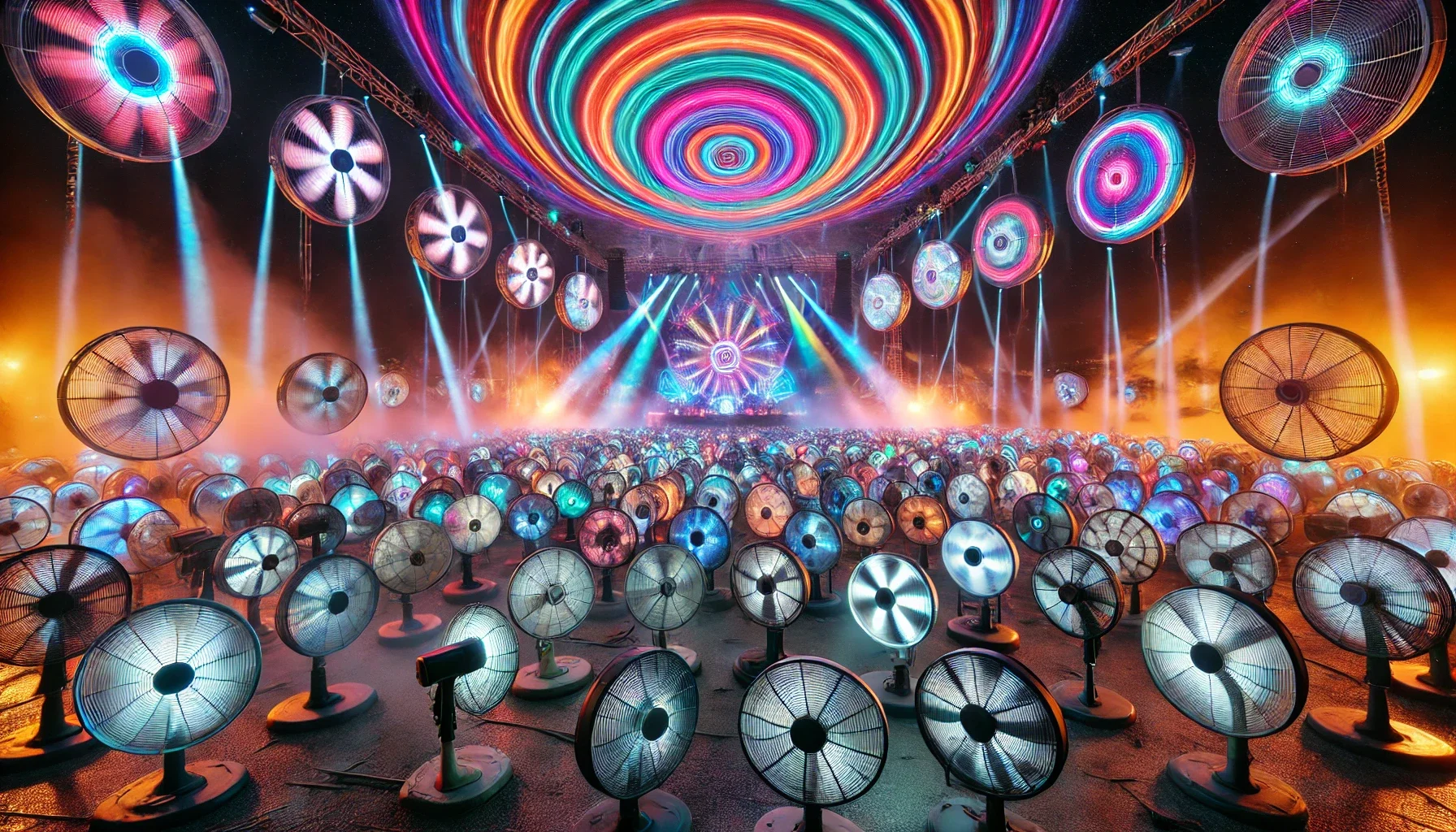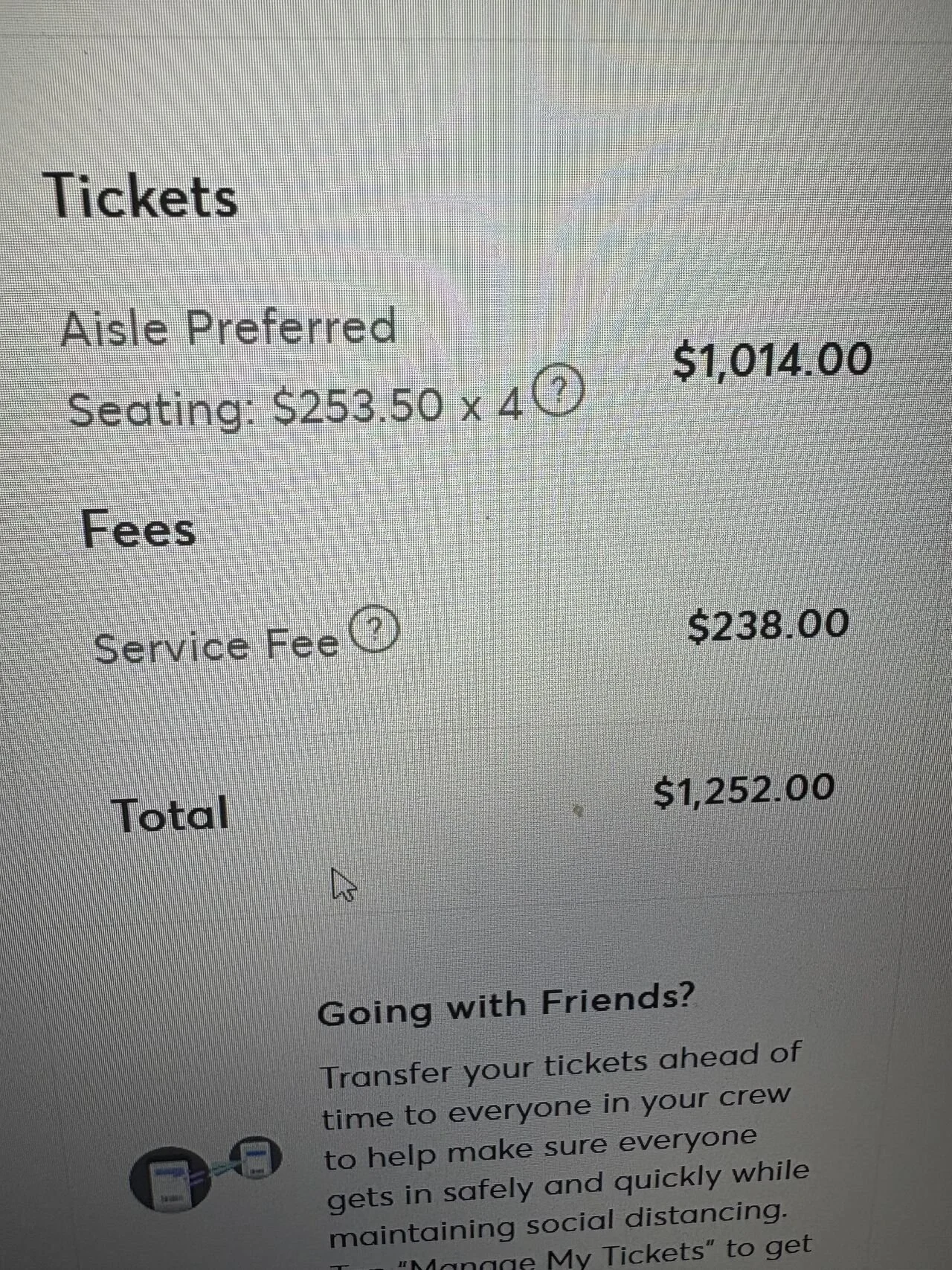How Live Nation Hijacked EDM: The $17B Festival Monopoly Fans Can’t Escape
EDM isn’t just music—it’s a product, sold through a machine. Live Nation built that machine. From Creamfields to EDC Vegas, they’re the puppeteers of lineups, the gatekeepers to stages and the silent shareholders in your favorite artist’s brand. Here’s how they metastasized power—and why both DJs and fans should be alarmed.
How Live Nation Built the Festival Machine That Owns the Music, the Artists, and You
EDM isn’t just music—it’s a product, sold through a machine. Live Nation built that machine. From Creamfields to EDC Vegas, they’re the puppeteers of lineups, the gatekeepers to stages and the silent shareholders in your favorite artist’s brand. Here’s how they metastasized power—and why both DJs and fans should be alarmed.
The Deep Dive: Live Nation & EDM
Live Nation doesn’t just control festivals. They control the idea of what a music experience is supposed to feel like. And they’ve been building this monopoly for decades—right under our bright-eyed and bushy-tailed raving noses.
History & Evolution: From Promoter to Puppetmaster
1996–2005: Born as SFX Entertainment under Robert F.X. Sillerman, whose Wall Street wet dream was to consolidate independent promoters into one mega entity.
2006–2012: Bought House of Blues, Creamfields, and HARD Events—the EDM foothold was in full effect.
2010: The Live Nation + Ticketmaster merger became official. Welcome to total vertical integration: venues, tickets, artists, data—everything.
2013–Present: Strategic “partnerships” like Insomniac cemented Live Nation’s control over the entire EDM lifecycle.
This wasn’t an expansion. It was a corporate occupation.
The Live Nation Music Control Web: Festivals, Venues, and Artists
Venues:
Live Nation owns or holds exclusive booking rights to 338–377 venues globally like the Fillmore SF, Ziggo Dome, 3Arena, Hollywood Palladium, House of Blues, and every amphitheater your mom posts throwback photos from. If your artist is touring, they’re likely passing through Live Nation’s owned gates.
Festivals:
EDC, Creamfields, HARD Summer, Bonnaroo, Lollapalooza, Reading & Leeds, Isle of Wight, Rock in Rio, BottleRock, and need I carry on? What looks like diversity is actually centralized programming behind one curtain.
Artists:
So, Live Nation manages or contracts 400+ artists, with 90+ managers in-house. The high-profile “360 deals” (U2, Madonna, Jay-Z) are just the tip of what they control.
Fans:
Well, the own the data of 100M+ fans and do whatever they shall please with it. That’s not good for us, artists, or music.
In EDM? Artists often sign away touring, merch, and even branding rights just to get a fucking time slot. A “worthy” time slot at EDC could cost you your name, your sound, your rights, and your soul.
The Monopolized Money Machine
Revenue Source - 2023 Earnings
Concerts $13.5 Billion
Ticketing (Ticketmaster) $2.5 Billion
Sponsorship/Ads $1.1 Billion
Total $17.6 Billion+
Live Nation doesn’t just make money on the music. They make money on everything surrounding it—including you.
They’ve Got You Down to a Science
Live Nation doesn’t just own the shows. They’ve mapped your behavior, your psychology, and your spending triggers.
RFID wristbands track where you are, what you buy, who you watch, when you leave.
Dynamic ticket pricing spikes your FOMO into submission.
App push notifications are timed to your exact dopamine window.
Pre-sales, VIP tiers, early access, wristband-only perks—all designed to activate reward centers in your brain.
We could go as far as saying Live Nation doesn’t sell tickets - they sell dopamine hits. They prey on scarcity, status, and speed. Flash sales. Waitlists. “Only 4 VIP Sky Decks left!” It’s psychological warfare disguised as a presale link.
Your wristband isn’t just a pass—it’s a tracker. Your favorite set? Data point. That text alert pushing the next DJ drop? Algorithmically timed.
They’ve studied us. FOMO. Nostalgia. PLUR. Our desire to feel like we belong, that the rave is still counterculture, that this show will be the one that changes our life. And, it probably will… but, they’ll bill you for it in six different ways AND sell your data. Live Nation is not your friend.
But… the Music Still Slaps. Right?
Yes. This is the wild part: the music always has been and always will be great. The artists? Mostly still real. Still trying to push creative boundaries. Still hungry. But they’re boxed in.
If they want a mainstage slot, they likely had to:
Give up creative control
Avoid certain indie promoters
Align with the “Live Nation-approved” narrative
They’re not sellouts. They’re survivors. In a system that treats music like merch and art like ad space, some artists are just trying to stay afloat and live the “average life”, which is completely okay.
The Absurdity We Keep Buying—Because It’s Still Worth It
We know the 20-30% service fee is criminal. We know the merch is overpriced. We know we’re being watched, tracked, nudged, and profiled. But we pay anyway.
Because it’s still magic. Because being at a show still feels like church. Because dancing at 2AM reaching for those laser beams still reminds us we’re alive. Because no algorithm can replace that one drop that probably makes you cry.
So we go. We pay. We participate—even when we know the system is rigged.
Not because we’re blind. But because we deserve the joy, even when it's been commercialized.
Fan Impact: You’re Not Just the Audience—You’re the Asset
Average ticket base price: $40
Final checkout after fees and “upgrades”: $120–$300+
You’re the product, and they’re reselling you to sponsors, advertisers, brands.
Discovery is no longer organic. You’re being funneled to who they want you to hear.
And all your emotion? Captured, sold, retargeted.
fyi: Antitrust Warnings and Regulatory Heat
DOJ lawsuits and UK investigations are probing monopoly behavior.
Live Nation insists it’s about “fan experience,” not vertical domination.
Meanwhile, competitors can’t compete, artists can’t breathe, and fans can’t afford.
So What Do We Do?
This isn’t a call to cancel live music. It’s not even a call to cancel Live Nation cause shit don’t work like that I am sure you all know. It’s a call to take back our music narrative and to call Live Nation UP to do better.
For artists:
Avoid 360 traps
Retain ownership
Decentralize your booking power
For fans:
Support indie promoters
Demand transparency
Take off your RFID wristband after the fest
Talk about this. Loudly. Online. In real life.
Let’s be clear: Live Nation isn’t the only problem
CTS Eventim, Superstruct, AEG, and a swarm of smaller “independent” players are doing the same thing—just wearing different logos.
Same consolidation tactics. Same festival takeovers. Same shady surveillance and data deals. And here’s the real kicker: they often share the same shareholders.
This means your so-called “choice” between fests or ticketing platforms? It’s basically an illusion. A different mask on the same face. A different checkout screen with the same payout destination.
So whether it’s a Superstruct-owned “boutique fest” or an AEG-run amphitheater tour, the profits still funnel up to the same institutional investors who’ve never danced a day in their lives.
The house always wins. Unless we start calling it out—by name.
Final Takeaway
Live Nation didn’t just build a music empire. They engineered an entertainment matrix. A corporate funnel disguised as culture. A monopoly that sells rebellion. A machine that profits off your passion.
But passion is still ours, too. There’s more of us than them. So… TALK ABOUT IT. Demand changes. Tweet at them. LinkedIn this shit. Get on TikTok and rant (heyo that’s coming soon). Get on YouTube and explain your experience. Fuck it, write a blog like it’s 2001. I’ll help.
Cause… the shareholders, well, they own the internet and things can oddly disappear, information can be changed without us noticing, the news section is oddly populated with only big news sources, there’s these funny changes here with the US internet (more later), and it… IS ALL RIGGED.
So, we fucking talk on social media — the platform given to us by these geniuses where anomalies happen suddenly and social media users are quicker than the software engineering team. Use it. A lot. Who cares if you post a lot. Just vent about it like we did on Facebook a long time ago.
Be loud. Be weird. Be free. ✌️
The $238 Fee That Unmasked Music’s Corporate Machine
Four Paul McCartney tickets with my dad: $1,014
Ticket fees: $238
Total: $1,252
I am done pretending this is just about a ticket. Ohhh baby, it’s not.
Four Paul McCartney tickets with my dad: $1,014
Ticket service fees: $238
Total: $1,252
Image description: 4 aisle seat tickets for Paul McCartney at Coors Field on October 11, 2025
My dad paid—because seeing live music together is our special tradition we’ve done almost every year together since 2003.
We saw Paul McCartney in Las Vegas in 2004. Humorously, my dutch boyfriend was there (we were 17 lol). My mom was there. My dad cried during "Hey Jude" — I think that was the first time I saw him do that. Now, two decades later, we’re going again. Probably for the last time cause I don’t know if you know how old The Beatles are.
I am beyond annoyed. I loathe this, like, a lot. Here I am on my punk rock pedestal saying “I’ve been saying this shit for 20 years but no one listens to me” whole spit. But, nah, I think it’s time I just crack this corrupt system wide open for all you curiously frustrated people.
And, I am done pretending this is just about a ticket. Ohhh baby, it’s not.
The crazy thing is I had this LinkedIn Post that popped. And, I’ve been on that oddly addicting platform for over 15 years and never have had a glimmer of a breakthrough post. But, when I mentioned my outrage with Live Nation because of HOW much they profit they receive and with what (their monopolies, data, ticketing, RFID wristbands, etc etc) it really struck a nerve.
So, let’s tear the roof off the music industry… shall we?
The System Behind the Fee
This isn’t about convenience. It’s about control. That service fee funds a sprawling corporate entertainment machine that:
Owns the artist
Owns the venue
Owns the festival
Owns the ticket
Owns the merch
Owns the data
And owns the algorithm that decides what you hear next
This is what I call the Cerulean Blue Effect in action: the illusion of choice, wrapped in a pleasant interface, concealing systemic control — and all rooted in the very real love fans have for the music. They’re not exploiting our apathy — they’re capitalizing on our passion.
Who Owns the Music Industry?
Each company’s ecosystem is self-sustaining, built to keep fans inside and artists on-brand. Here's how they operate:
🟢 Live Nation Entertainment
Owns: Ticketmaster, 400+ venues across 40+ countries, 100+ festivals, Front Line Management (over 250 artists), plus production, marketing, security, and concessions.
Stakeholders: Liberty Media (~30%), Vanguard, BlackRock, State Street.
Catalog Control: Holds stakes in licensing catalogs via artist management and publishing partnerships — influences what gets pushed in playlists and sync deals.
Fan Ecosystem:
Ticketmaster collects detailed buyer data, which feeds into Live Nation's ad tech for retargeting. Their mobile apps, loyalty programs, and RFID tech reinforce behavioral predictions, fueling dynamic ticket pricing, merch offers, and tour announcements tailored to your habits.Festivals: EDC, Lollapalooza, Bonnaroo, Governors Ball, BottleRock, Austin City Limits, Rolling Loud (partial deals).
Artist Deals: Madonna, Jay-Z, U2, Shakira, Blink-182, Logic, Red Hot Chili Peppers, Foo Fighters.
Rising Artists: Teddy Swims, Jessie Murph, KennyHoopla, Ice Spice, Peso Pluma, Chappell Roan.
🔵 AEG (Anschutz Entertainment Group)
Owns: 120+ venues globally, 30+ festivals, AXS ticketing, Goldenvoice, The O2 Arena, Crypto.com Arena, Dignity Health Sports Park, LA Live.
Stakeholders: Privately owned by Philip Anschutz; indirect ties through foundations and legacy investment structures.
Catalog Control: Goldenvoice promotes high-revenue legacy acts and newer signings; sync and brand tie-ins reinforce catalog monetization.
Fan Ecosystem:
AXS integrates with Clear biometrics and app ecosystems, leveraging facial recognition and location data to push VIP upgrades, early bird deals, and tiered experiences. AEG’s sports holdings allow for cross-promotional campaigns across fan demographics.Festivals: Coachella, Stagecoach, Firefly, All Points East, Hangout Fest.
Artist Focus: Taylor Swift, Beyoncé, Harry Styles, BLACKPINK, The Rolling Stones.
Rising Artists: Omar Apollo, Remi Wolf, Yves Tumor, Jean Dawson, Victoria Monét.
🟠 CTS Eventim
Owns: 200+ venues in Europe, 40+ major festivals, 60+ promoter and ticketing subsidiaries including See Tickets (UK/US), TicketOne (Italy), Ticketcorner (Switzerland).
Stakeholders: Klaus-Peter Schulenberg (~39%), BlackRock, Vanguard.
Catalog Control: Direct promoter-artist deals feed into broadcast licensing and sync rights through European broadcasters and digital platforms.
Fan Ecosystem:
Deep integration with See Tickets and Eventim analytics tools track purchase behavior across borders. Eventim-owned DSPs and ad networks help cross-sell experiences and monetize fan loyalty via tiered access, early access email programs, and behavioral coupons.Festivals: Rock am Ring, Hurricane, Southside, Love Supreme, Deichbrand, Airbeat One.
Artist Reach: Rammstein, David Garrett, Peter Maffay, Andrea Bocelli.
Rising Artists: Fred again.., Nia Archives, Paula Hartmann, LUNA, Schmyt.
🔴 Superstruct Entertainment
Owns: 85+ festivals, 15+ production companies, and venue partnerships worldwide.
Stakeholders: Providence Equity (founder), now KKR & CVC Capital.
Catalog Control: Partners with ID&T and Defqon.1 label projects; integrated with global electronic and techno publishing networks.
Fan Ecosystem:
Leverages loyalty wristband tech, brand activations, and international ticketing partnerships. Known for hyper-personalized email marketing and RFID-enhanced fan tracking at events, which is shared with brand sponsors for hyper-targeted post-festival engagement.Festivals: Sziget, Sonar, Boardmasters, Elrow, Wacken, Awakenings, Defqon.1, Mysteryland, Thunderdome (via ID&T).
Artist Focus: Carl Cox, Charlotte de Witte, Peggy Gou, Armin van Buuren, Tiësto.
Rising Artists: Héctor Oaks, LSDXOXO, VTSS, Anetha, SPFDJ, Chris Avantgarde.
How They Track and Control Fans
These companies don’t just promote shows — they profile your behavior and engineer your next experience. Here's how:
RFID Wristbands:
Used at most major festivals and venues to monitor where you go, how long you stay, what you buy, and who you interact with. This data is monetized through sponsor partnerships and targeted marketing.Dynamic Pricing:
Based on your browsing and buying history, ticket prices are adjusted in real time using AI — the more interest you show, the more you’ll pay.Behavioral Targeting:
Your activity on apps like Spotify, YouTube, and Instagram is cross-referenced with your ticketing history. Personalized ads are pushed to you when you're most likely to convert.Geo-fencing and Location Tracking:
Fans inside venues or festivals are digitally tagged for follow-up offers and artist-specific campaigns post-event.Data Partnerships:
Collaborations with platforms like Meta, Google, and Spotify let these companies track fans beyond the show — into your feed, your search history, and even your playlists.Fan Loyalty Algorithms:
Engagement scoring ranks how “valuable” you are as a consumer and serves you early access, exclusive merch drops, or VIP upgrades — all based on your data profile.
This isn't just about delivering great shows — it's about controlling the pipeline from discovery to transaction, all while building a predictive model of your musical life.
How the Ecosystem Feeds Itself
Each of these corporations has built a closed-loop entertainment empire where artists, venues, data, and content all feed into their own ecosystem — amplifying their power and market control.
Catalogs:
Stakeholders like Liberty Media, BlackRock, and KKR have a hand in both the ownership and distribution of massive music catalogs — from legacy icons to AI-trained up-and-comers. These catalogs aren’t just for listening; they’re mined for data, licensed for media, and used to train algorithms to predict what we’ll want next.Stakeholders:
Investment giants (Vanguard, CVC, State Street) profit from every ticket sold, stream played, ad viewed, and venue filled. The music becomes just one spoke in a financial flywheel turning toward quarterly gains.Fan Data:
All that biometric, behavioral, and purchase data? It feeds proprietary dashboards used to decide which artists get a push, which venues get bookings, and which fans are most profitable.Monetized Loyalty:
The more data you generate, the more you’re shaped into a 'fan type' — which triggers automated offers, early access invites, merch drops, and targeted content. This isn’t fandom. It’s segmentation.Platform Interlock:
These conglomerates collaborate with social media platforms, DSPs, merch vendors, and ad tech firms to circulate their artists, boost tours, and prioritize their properties algorithmically. Your Spotify suggestions and your YouTube ads are often just mirror reflections of what one of these giants is trying to sell you.
It’s not just a business. It’s a feedback loop of influence — a full-stack entertainment monopoly built on emotional connection, optimized by machine learning, and bankrolled by global investors.
Trapped In, Locked Out: The Artist Dilemma in the Corporate Music Machine
The music industry’s not just expensive for fans. It’s a trap for artists, too.
Whether you’re in the system or out of it — you’re losing.
If You’re In the System (Live Nation, AEG, Superstruct, etc):
You’re likely signed to a 360° deal. That means:
You don’t just give up streaming rights.
You give up cuts of touring, ticketing, merch, sync licensing, VIP, AND data.
You’re booked on festival circuits owned by your boss (Live Nation owns the festival, venue, ticketing system, and sometimes even your manager). You perform in a pre-engineered slot, surrounded by other “roster acts” to keep it all in-network.
You’re told it’s a career-maker. But here’s the truth:
You can’t negotiate set times
You can’t sell merch freely (many venues take a 15–25% cut)
You can’t bring your own openers
You’re forced to tour where it makes corporate sense — not where your fans actually live
You’re profitable. But you’re not free.
If You’re Outside the System:
Good luck.
Can’t book major venues — they’re owned by Live Nation or AEG
Can’t get prime festival slots — already spoken for by in-roster talent
Can’t run your own ticketing — you’ll be throttled by algorithms and platform limitations
Can’t get press — many outlets rely on relationships with the same corporate PR firms
Even worse?
Spotify and YouTube algorithms are trained to favor in-network artists
Discovery playlists are not neutral — they’re engineered funnels based on marketability, ad partnerships, and backend priorities
Touring independently costs more than it returns, especially with rising travel, hospitality, and insurance fees
So while corporate-backed dumb dubstep artists play random big shows for $75+ a ticket, other cooler artists — with real sound that isn’t a Bassnectar wannabe like we’re in 2013 — can’t even get booked cause it’s “just not the right vibe”.
The Result?
Mid-tier, algorithm-friendly acts flood the festival circuit
Real talent gets buried under marketing budgets
Ticket prices skyrocket, and fans get less while paying more
Fans settle for “just okay” live experiences because there’s no access to better ones
It’s a feedback loop:
Data → Drives funding → Drives festival slots → Drives ticket pushes → Feeds more data.
And if you’re not already inside? You’re outside the wall — unheard.
What Needs to Change?
Venue independence
Artist-first ticketing and merch splits
True platform transparency in discovery and streaming
Fan funding and direct artist support as a viable revenue model
Curated community events not controlled by Live Nation, AEG, or PE-backed collectives
My WORD IF IT MEANS ANYTHING
I’m not just calling this out — I’m tracking it. The only way past is through bitches — and we have to find a way to work together while holding big money and big data machines accountable.
Every backdoor deal. Every tour ad funnel. Every artist contract clause. Fans deserve affordable shows. Artists deserve more than exposure. And we all deserve to be treated better than whatever this data monster shit is.
This culture deserves clarity — and actual choice.
Maybe you heard it here first. Maybe you didn't. Does it matter?
—Stacy




